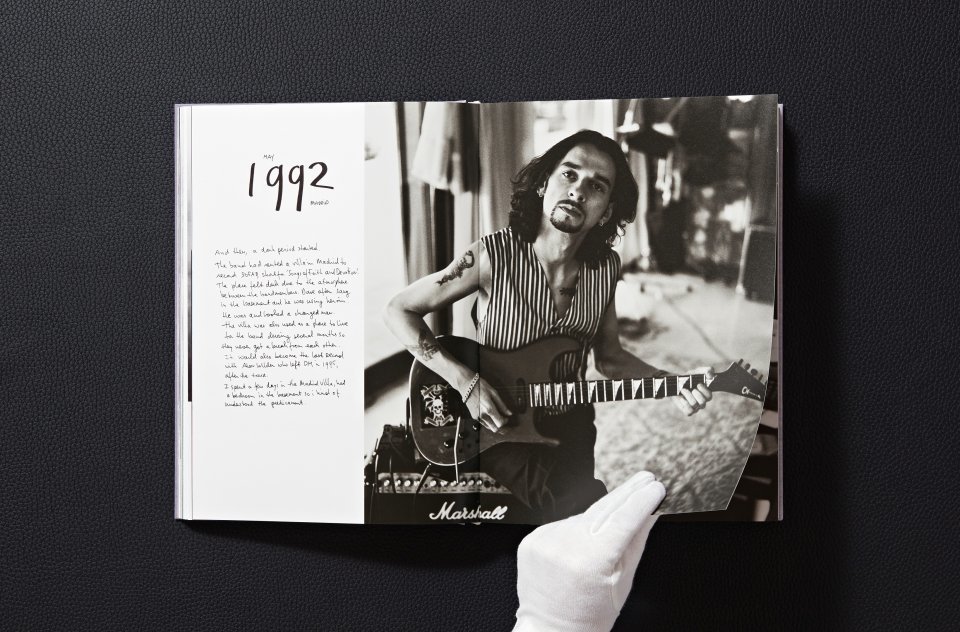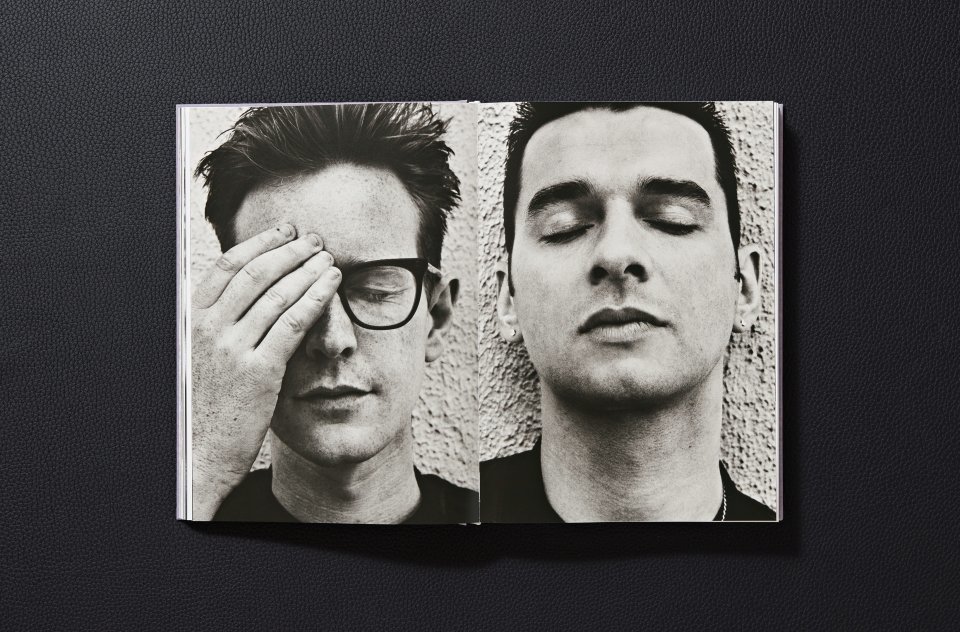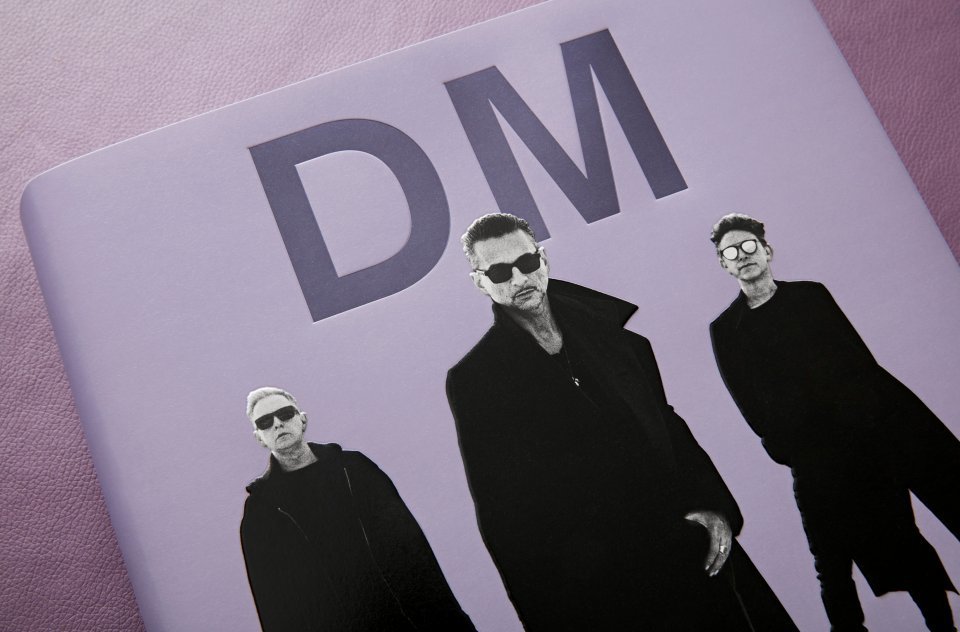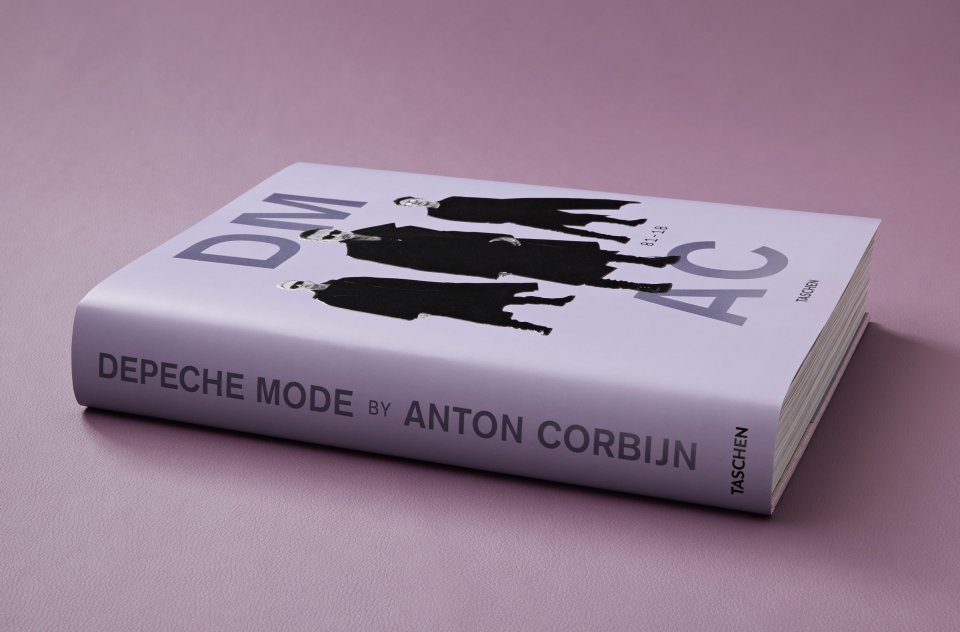Last year, photographer Anton Corbijn released a new book, MOOD/MODE, showcasing work outside the boundaries of the rock photography world in which he’d made his name. But no matter whom he’s photographing, Corbijn brings a high seriousness to the endeavor that he explains as part of his religious upbringing in the book’s introduction. “My Protestant background always marked & influenced my portrait photography. Mankind. Humanity. Empathy,” he writes, were the ideals he absorbed as a child. Such beliefs “kept me from doing work that lacked a deeper purpose.”
Corbijn grew up in a small village outside Rotterdam, Jean-Jacques Naudet writes. “His father and many other male members of his family were pastors. Life was strict and simple, on Sunday everybody dressed in black. Religion was omnipresent.”
He moved away to the city and began taking photos of the music scene at 17. But the look and feel of his early life never left him. It was this aesthetic that attracted Depeche Mode, one of Corbijn’s longest-running musical collaborators and a band who were no strangers to brooding in black and making religious references and appeals to humanity.

“We were seen as just a pop band,” says Depeche Mode’s Martin Gore. “We thought that Anton had a certain seriousness, a certain gravity to his work, that would help us get away from that.” Corbijn first helped them refine their look in mid-80s and “was able to give the Depeche Mode sound, that we were beginning to create, a visual identity,” says singer Dave Gahan. That identity is now the subject of a new book from Taschen that collects “over 500 photographs from Anton Corbijn’s personal archives,” notes the arts publisher, “some never seen before, as well as stage set designs, sketches, album covers, and personal observations” about the “world’s biggest cult band.”
Corbijn became such an integral part of Depeche Mode’s success, the band considered him “a veritable unseen member of the group,” writes Post-Punk.com, mediating their image not only through photography but also live projections and, of course, music videos. They were able to achieve “a kind of cult status,” says Gore in the mini-documentary above, which also has an interview with Corbijn. The photographer walks us through his history with the legendary synth pioneers (whom he did not like at first), beginning with the first image he shot of them in 1981, when founder Vince Clarke was still in the band.
Clarke leans behind Gahan’s left shoulder, the full band framed by a stone arch. To Gahan’s right is an enormous crucifix. It set a tone for the working relationship to come. “There has to be an element of the person in the photograph,” says Corbijn of his portraiture, “but there also has to be an element of the photographer.” It took another few years after that first shoot, he tells The Guardian, but he realized “how good their music and my visuals actually went together…. They had soul.” You can order a copy of the new book, Depeche Mode by Anton Corbijn from Tashen here.



Related Content:
A Visual History of The Rolling Stones Documented in a Beautiful, 450-Page Photo Book by Taschen
Depeche Mode Before They Were Actually Depeche Mode: Stream Their Early Demo Recordings from 1980
Lost Depeche Mode Documentary Is Now Online: Watch Our Hobby is Depeche Mode
Depeche Mode Releases a Goosebump-Inducing Cover of David Bowie’s “Heroes”
An Illustrated History of Depeche Mode by Anton Corbijn is a post from: Open Culture. Follow us on Facebook and Twitter, or get our Daily Email. And don't miss our big collections of Free Online Courses, Free Online Movies, Free eBooks, Free Audio Books, Free Foreign Language Lessons, and MOOCs.



0 Commentaires